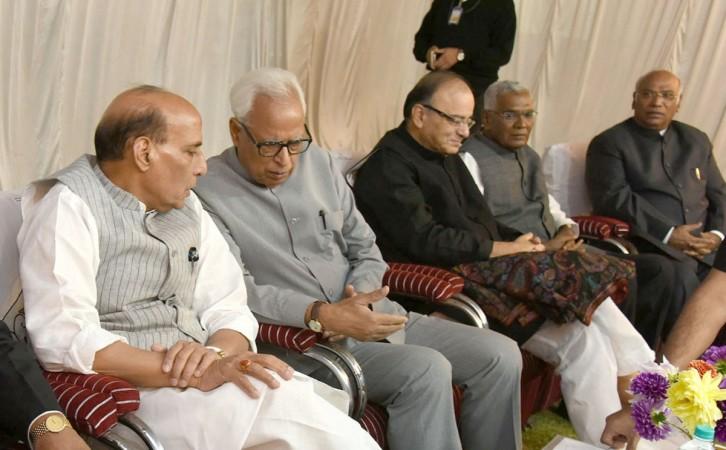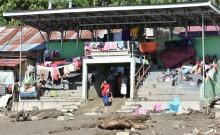
The all-party meeting in Delhi on the Kashmir unrest yielded the easily anticipated decision on further talks, messages of peace and requests for the people of Jammu and Kashmir (J&K) to shun violence. The parties were however divided over whether to revoke the contentious Armed Forces [Special Powers] Act, or AFSPA, in the state.
Minister of State in the Prime Minister's Office (PMO) Jitendra Singh said after the meeting that the all-party delegation that visited J&K — which has entered its third month of shutdown — felt "there's no place for violence in a civilised society." He said they also felt there can be "no compromise on issue of national sovereignty."
Singh said that the members [of the all-party delegation] have appealed to the people of the state to shun the path of violence and resolve all issues through dialogue and discussion. The members have asked the Centre and the state government to take steps to ensure that educational institutions, government offices and commercial establishments start functioning normally.
The members have also requested the governments to take effective steps to provide medical treatment to citizens and security personnel injured in the agitations.
Meanwhile, the Left parties, led by Sitaram Yechury, called for removal of AFSPA from civilian areas, a demand that has been gaining traction for quite some time. However, he did not get unanimous support for his suggestion.
He said after the meeting: "If the prime minister [Narendra Modi] is going for the SAARC summit, Indo-Pakistan talks should be restarted again. These contribute to long-lasting solutions."
One may note that that the Kargil war in mid-1999 had come just three-four months after the Lahore declaration between the two countries and the starting of the Delhi-Lahore bus service.
















